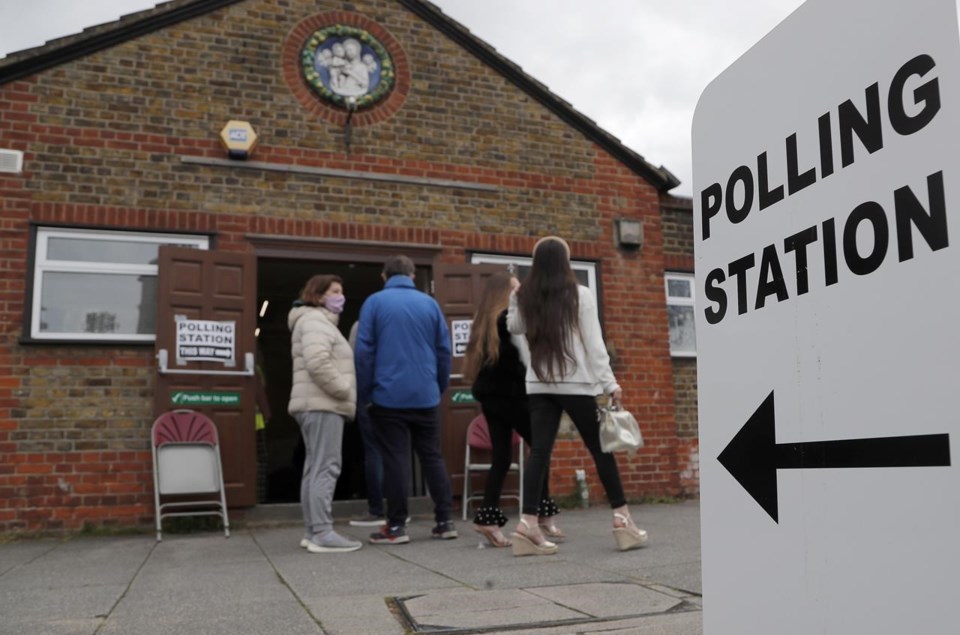LONDON (AP) — Observers of Britain’s governing structure can be forgiven for scratching their heads in recent weeks as they watch the country reel through a succession of prime ministers without holding an election. While the opposition Labour Party is demanding an election, the governing conservatives are pushing on with choosing another prime minister from within their own ranks, which they have the right to do because of the way Britain's parliamentary democracy works.
BRITONS NEVER ACTUALLY VOTE FOR THEIR PRIME MINISTER
Britain is divided into 650 local constituencies, and people tick a box for the representative they want to become their local member of parliament, or MP. In most cases, this will be a member of one of the country's major political parties.
The party that wins the majority of seats gets to form a government, and that party's leader automatically becomes prime minister. While coalitions are possible, Britain's voting system favors the two largest parties and in most cases a single party will take an absolute majority of seats, as is the case for the Conservatives in the current Parliament.
HOW DO THE PARTIES CHOOSE THEIR LEADERS?
Since 1922, all of Britain’s 20 prime ministers have come from either the Labour Party or the Conservative Party. This means the members of these parties have an outsized influence on who will be the country’s prime minister. The processes the parties use to choose them can appear Byzantine.
Deep breath: For the Conservative Party, their lawmakers must first signal their support for a potential leader. If there is enough support, this person will become an official candidate. All Conservative MPs then cast a series of votes, gradually whittling down the number of candidates to two. Finally, the party’s ordinary members — around 180,000 of them — vote between these two candidates. Last time they chose Liz Truss over Rishi Sunak.
If the MPs are able to unite behind a single candidate then there is no need for the wider party members to have a vote. This last happened in 2016 when the lawmakers backed Theresa May after the resignation of David Cameron and she automatically became prime minister. This could happen again.
The Labour Party has its own process that is, arguably, even more complicated.
BUT DIDN'T BRITAIN VOTE FOR BORIS JOHNSON IN 2019?
Johnson was selected by his party following the resignation of Theresa May. He had already been prime minister for five months when electors ticked their ballot cards in December 2019. However, voters' support for the Conservative Party did cement his position as prime minister.
Even in that election, though, it was only actually around 70,000 people who got the chance to vote directly for or against Johnson — those who happened to live in his Parliamentary constituency of South Ruislip and Uxbridge, in west London.
Since then, another prime minister, Liz Truss, has come and gone, and one more will be in place by the end of next week — all without anyone troubling the general electorate.
WILL THERE BE A GENERAL ELECTION SOON?
Constitutionally, no general election is required in Britain for two more years. But as the prime ministers come and go, selected by a tiny proportion of the population, a lot of Britons are beginning to wonder why they are not getting a chance to influence who is their next leader. The clamor for a general election in the near future is only likely to get louder.
The Associated Press



